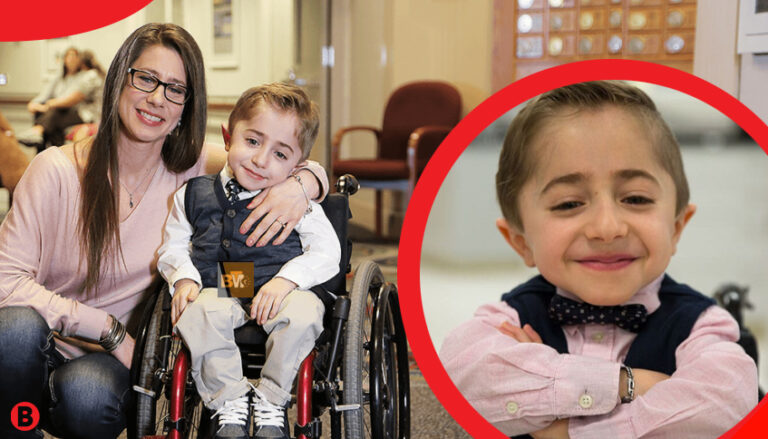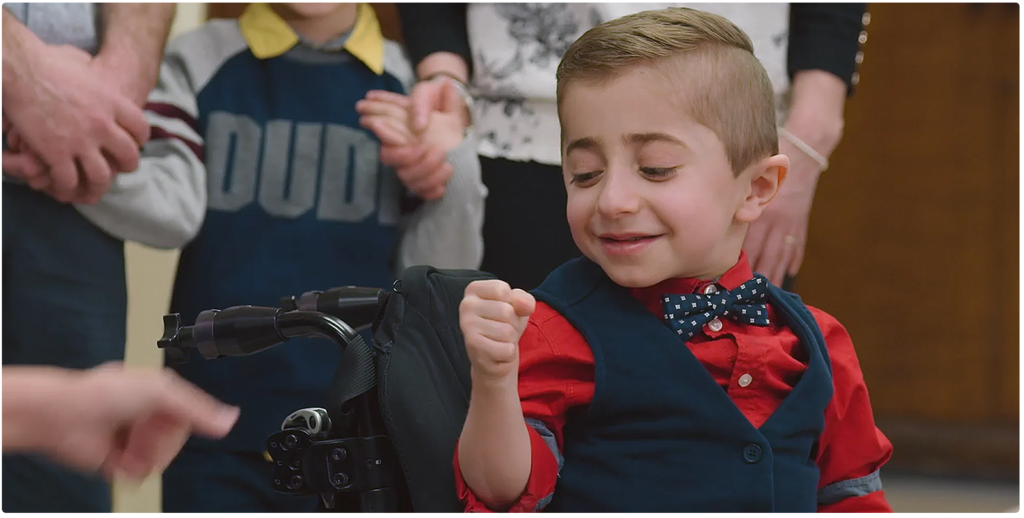
When Alec Cabacungan and Kaleb-Wolf De Melo Torres appear in commercials for Shriners Hospitals for Children, they bring more than just a face to the screen they bring a story of resilience, strength, and hope. These young boys, living with osteogenesis imperfecta, a condition that makes bones brittle, have become symbols of the transformative power of specialized care. Their commercials have raised awareness for the hospital’s mission, but a question often arises: Do Alec and Kaleb get paid for their appearances in commercials?
Who Are Alec and Kaleb?
Alec and Kaleb are two young boys who have captured the hearts of millions through their inspiring stories. Both living with osteogenesis imperfecta, they’ve faced more challenges than most could imagine. Alec, who has broken over 60 bones, and Kaleb, who’s had more than 200 fractures, are remarkable examples of resilience and hope.
Their journey with Shriners Hospitals for Children began when they were just babies, and over the years, they’ve become the faces of the hospital’s outreach programs. Alec, with his infectious smile, and Kaleb, with his boundless energy, have made lasting impressions through commercials, public appearances, and fundraising campaigns.
Do Alec and Kaleb Get Paid for Commercials?
Yes, Alec and Kaleb are compensated for their work in Shriners Hospitals commercials. While the specifics of their compensation are not publicly disclosed, they likely receive both monetary and non-monetary benefits for their involvement. This could include flat fees for their time and efforts, as well as potential royalties or residual payments based on the success of the commercials.
Their roles require a significant amount of time and energy, and it’s common practice for organizations, even nonprofits like Shriners, to compensate their spokespeople for the time and effort they put into their work.

How Nonprofits Compensate Their Spokespeople
For nonprofit organizations like Shriners Hospitals, compensation models can differ from traditional commercial work. In many cases, spokespersons are compensated through a combination of direct payment and non-monetary benefits. These might include:
- Flat Fees for appearances or public speaking engagements.
- Royalties or Residuals from commercials that air repeatedly.
- Scholarships for educational support.
- Travel Opportunities to attend events and conferences.
- Increased Media Exposure, which could benefit spokespeople in other professional endeavors.
Alec and Kaleb’s compensation likely includes some of these benefits, allowing them to focus on their advocacy work while being recognized for their efforts.
Must Read the Article: Who is Charles Ezekiel Mozes? Exploring the Life of Cynthia Nixon’s Son
The Impact of Their Advocacy
Alec and Kaleb have done more than just appear in commercials they’ve become key figures in raising awareness for Shriners Hospitals. Their stories have touched millions, helping to generate donations that fund the hospital’s mission to provide care to children in need, regardless of their families’ ability to pay.
Through their appearances in commercials, these two young boys have been instrumental in connecting the public with the hospital’s work. Their advocacy shows how effective personal stories can be in driving public support and raising the funds necessary to provide critical care.

Payment for Time and Effort
It’s important to recognize that Alec and Kaleb dedicate significant time to their roles. Being the faces of a nonprofit requires more than just filming a commercial. There are numerous public appearances, media interviews, and fundraising events that they participate in. All of these commitments take time, and it’s essential that they are compensated for the energy and dedication they put into their roles as spokespeople.
While their work for Shriners may not generate the same income as Hollywood actors, their contributions are still recognized and compensated in a manner appropriate for their age and involvement.
Non-Monetary Benefits
While Alec and Kaleb likely receive monetary compensation for their appearances, it’s also important to note the non-monetary benefits they gain from their roles as spokespeople. Some of these benefits might include:
- Educational Scholarships: As young advocates, scholarships may be offered to support their education.
- Travel Opportunities: Their roles might involve traveling to various events, providing unique learning experiences.
- Increased Media Exposure: The commercials and public appearances can raise their profiles, which might open doors for future opportunities in media or advocacy.
- Networking: Through their public work, Alec and Kaleb likely meet influential individuals who can help them in their personal and professional growth.
These benefits go beyond financial compensation and can significantly impact their futures.
Why Their Participation Matters
Alec and Kaleb are much more than just paid spokespeople they are genuine advocates who have a personal connection to the cause. Both have received care at Shriners Hospitals, which makes their advocacy even more meaningful. Their willingness to share their stories publicly has not only helped to raise funds for the hospital but also inspired others who are facing similar medical challenges.
Their role as spokespersons for Shriners is not just about promoting the hospital it’s about using their voices to make a difference in the lives of children who need help. By sharing their personal experiences, they’ve become symbols of hope, showing the world that specialized medical care can truly transform lives.
Voluntary Participation
While Alec and Kaleb are compensated for their time, their participation in these commercials and campaigns may also have an element of volunteerism. Both boys have strong, personal connections to Shriners Hospitals, and their willingness to share their stories could come from a place of deep passion for advocacy rather than just financial compensation. Their desire to help others who are going through similar challenges is likely a motivating factor in their work.
This sense of purpose adds a special layer to their advocacy, as they aren’t just fulfilling a contractual obligation they are actively working to make a difference in the lives of other children and families.

Alec and Kaleb’s Legacy
The impact Alec and Kaleb have had on Shriners Hospitals cannot be overstated. Through their commercials, public appearances, and advocacy, they have brought much-needed attention to the hospital’s mission. They’ve helped raise funds, build community support, and, most importantly, inspired hope for children facing serious medical challenges.
Their roles go beyond being paid spokespeople they have become the faces of a cause that is close to their hearts. By sharing their stories, they’ve shown the world that the work of Shriners Hospitals is about more than just medical treatment; it’s about changing lives.
Conclusion
So, do Alec and Kaleb get paid for their roles in commercials? The answer is yes, but the compensation they receive is just one part of their incredible contributions to Shriners Hospitals for Children. Their time and effort are recognized through a combination of monetary compensation and non-monetary benefits, all while they continue to advocate passionately for the hospital’s mission.
Alec and Kaleb’s journey from patients to spokespersons has been nothing short of inspiring. Their participation in commercials and other public campaigns has helped raise awareness, inspire donations, and provide hope to countless families. More than just paid ambassadors, Alec and Kaleb have become symbols of hope, resilience, and the profound impact that specialized medical care can have on children’s lives.
As they continue to share their stories, one thing is clear: Alec and Kaleb are making a difference, and their work is invaluable not just for Shriners Hospitals but for everyone who has the privilege of hearing their message.
FAQs
1. Who are Alec and Kaleb?
Alec Cabacungan and Kaleb-Wolf De Melo Torres are young advocates for Shriners Hospitals for Children. Both have osteogenesis imperfecta, a condition causing brittle bones, and they’ve used their stories to raise awareness for the hospital’s mission.
2. Do Alec and Kaleb get paid for commercials?
Yes, Alec and Kaleb are compensated for their appearances in Shriners Hospitals commercials. They likely receive monetary payments as well as non-monetary benefits such as scholarships and media exposure.
3. What is osteogenesis imperfecta?
Osteogenesis imperfecta (OI), also known as brittle bone disease, is a genetic disorder characterized by bones that break easily. Both Alec and Kaleb live with this condition, which requires specialized medical care.
4. How do Alec and Kaleb impact Shriners Hospitals?
Alec and Kaleb play a crucial role in raising awareness for Shriners Hospitals. Through their commercials and public appearances, they help generate donations and support for the hospital, highlighting the transformative power of its care.
5. Why do Alec and Kaleb volunteer for Shriners?
While they are compensated for their time, Alec and Kaleb have a strong personal connection to Shriners Hospitals. Their advocacy is driven by a passion to help others facing similar medical challenges, making their involvement more than just paid work.